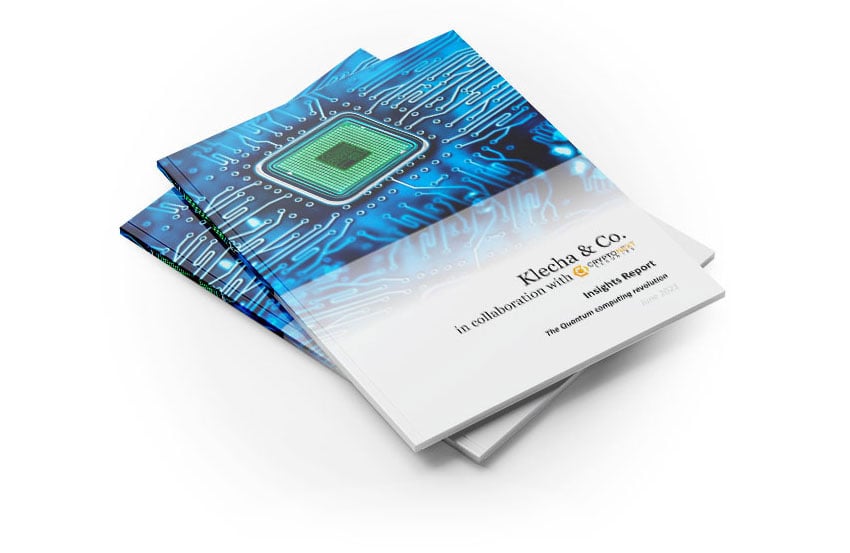Quantum computing has vast applications and could benefit a number of industries. Our research suggests it would most benefit the following 5 industries detailed below.
Banking and Finance
The inherent complexities in the banking and finance sector make it a fertile ground for the application of Quantum computing, with a wide range of applications for the industry. In particular, Quantum computing will be enable banks and financial institutions to more effectively analyse large or unstructured data sets. Quantum computing could be used for risk modelling and trading applications.
It could better help detect market volatility by identifying stock market risks and optimising trading strategies, portfolios, asset pricing and hedging. Financial institutions that can harness quantum computing are likely to see significant benefits such as asset management firms optimising portfolios to earn higher rates of returns, improved fraud detection in retail banking, as well as better risk management for investment and corporate banking.
Climate change and the environment
Climate change is arguably the greatest challenge facing humanity today, with the United Nations calling it the greatest threat to global security and not merely an environmental problem. Quantum computing could be an important weapon in the fight against global warming and climate change.
Applying quantum computing to current technologies, could contribute to solutions that change how power is generated and stored generate; how homes, automobiles, ships, and airplanes are made; how transportation is powered as well as how to re-configure age old industrial production processes for manufacturing cement, steel, and fertilisers.
Additionally Quantum simulation could help in devising new carbon capture solutions which could be potentially be a game changer in the fight against global warming.
Healthcare
Quantum computing could help revolutionise drug development. The use of quantum simulation in drug development could help understand diseases that involve misfolded proteins like Alzheimer’s, Parkinson’s and Huntington’s diseases. Further understanding of these conditions could lead to better drugs to treat them. In rare diseases such as macular degeneration, one of the leading causes of blindness in people over the age of 50, early detection can result in treatment. However as there are no symptoms this is hard. Quantum computing can aid early detection optometrists to image and track the physiology of the eyes and detect macular degeneration potentially before there are symptoms.
Transportation
The transportation industry is currently undergoing a renaissance with growing use of electric vehicles globally as well as increased investment in self-driving vehicles. Quantum computing could further revolutionise transportation: from cars to airplanes as well as more efficient traffic management.
In the aerospace industry, the range of potential applications for Quantum computing are vast. These include speeding up aircraft design, debugging millions of lines of software code and resolving complex computational challenges. Additionally it could also help in assessing the optimal amount of fuel and speed at which commercial aircrafts should fly at, thereby potentially helping the industry to improve its sustainability performance. In electric vehicles, Quantum computing could be applied in to better understand what happens at an atomic level, which could pave the way to producing lighter and more powerful batteries for electric cars. This newer battery technology could also be used for energy storage which is key for renewable power generation and transmission.
Cybersecurity
Quantum computers could easily break current commonly used cryptography techniques like RSA encryption to keep sensitive data and electronic communications secure. It could quickly find the prime factors of large numbers, a task that classical computers find extremely difficult, thereby cracking through RSA encryption relies on. However a Quantum world is not all doom and gloom for cybersecurity, as Quantum computing could be used to develop new encryption methods.
Collectively these new encryption methods are referred to post quantum cryptography (also called quantum-resistant cryptography). The goal of post-quantum cryptography is to develop cryptographic systems that are secure against both quantum and classical computers, and can interoperate with existing communications protocols and networks. These methods are designed to be more resilient to quantum computers, often by creating a problem that is beyond the ability of even a powerful quantum computer to solve.
Another nascent quantum computing technology is called Quantum Key Distribution (QKD), a new technique for sending sensitive information that uses light signals to detect intruders in the system. QKD works by transferring encryption keys using entangled qubits. Since quantum systems are altered when measured, it’s possible to check if any QKD transmission data has been intercepted.

